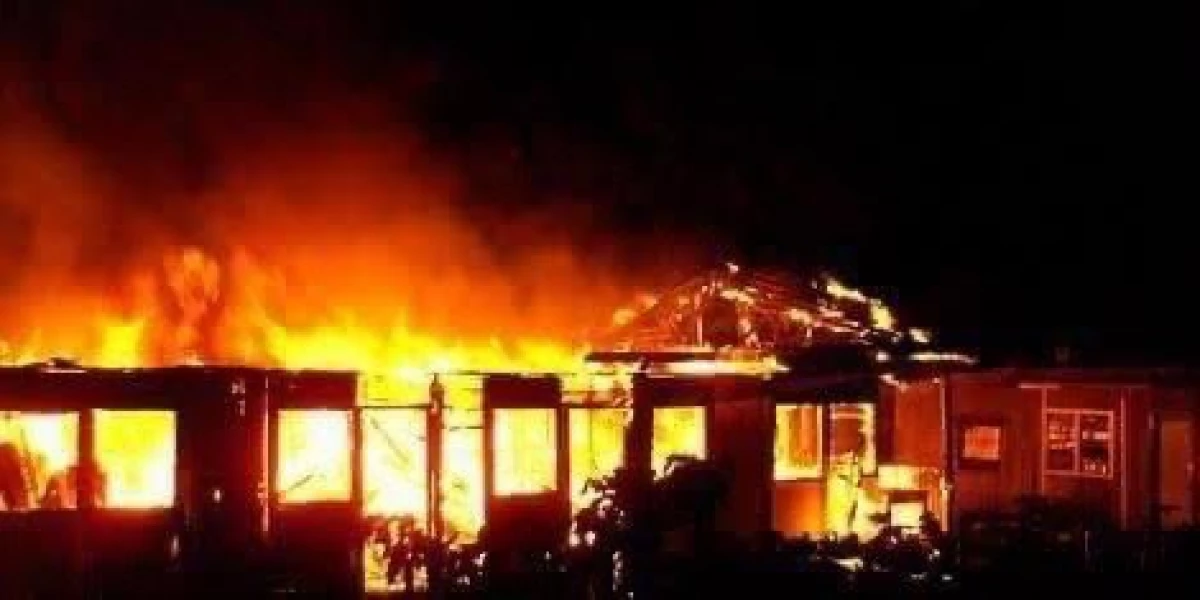
 Kamukunji market fire /COURTESY
Kamukunji market fire /COURTESYWhen Urbanus Wambua got the call, he was still in bed. It was early—too early for business—but when the word “fire” reached his ear, he jumped out of bed and rushed to the Kamukunji market. By the time he arrived, it was too late.
In the quiet cold hours before dawn on Sunday, fire swept through a section of Kamukunji market in Nairobi, leaving nothing but twisted metal and ashes—along with the shattered hopes of dozens of small-scale traders.
The fire has made worse a difficult business environment, sending traders to the abyss as they try to figure out how their loans will be serviced and their families sustained.
“I had good stock. I tried to save some of it, but it was already too late,” Wambua said, standing amid the ruins of what used to be his vibrant stall. “Now all that’s left are burnt iron sheets.”
Wambua’s voice broke. He didn’t just lose his stock—worth more than Sh500,000 by his estimate—he lost the business he had built over 12 years, one sale at a time.
All around him, charred beams leaned precariously, iron sheets curled from the heat, and the acrid scent of smoke lingered in the air. By Monday morning, the Nairobi Handicraft Market in Kamukunji—once a colourful hub for artisans and dreamers—had fallen silent.
More than 20 stalls were destroyed in the blaze. At least 70 traders are now without work. The fire started in the early hours of Sunday, a time when most traders were at home. By the time emergency crews arrived, the damage had already consumed much of the market.
Wambui wa Nyanya, who ran an M-Pesa kiosk and a small convenience shop, got a call at 4.30 am.
“I rushed there... but the fire had taken over,” she said quietly, her gaze lost somewhere in the ashes.
“I saved nothing. Even though the firefighters came quickly, it was already too late. I just watched it all go up in smoke.”
Though she praised the Nairobi City County fire brigade for their quick response—which likely saved other parts of the market—she, like others, had nothing left to rebuild with.
“We’re Back to Zero”
Judith Ochieng’, a widowed mother of three, lost her small restaurant—“Mama Judy’s Kitchen”—along with all its food supplies, cooking equipment and cherished customer relationships.
“I cooked with love every day,” she said, eyes wet with tears. “People came here not just to eat, but to talk, to share and to feel at home.”
She estimates her business was worth about Sh200,000. It was her family’s only source of income, paying rent, fees and food.
“My hotel was how I educated my children,” she said.
“Now, the fire has taken me back to zero. I have no plan B.”
On Monday, a few loyal customers came by to check on her. One left behind a small envelope with Sh500 inside. Another offered prayers. But none could offer what she needed most: a new beginning.
While Nairobi has seen its share of tragic market fires—Gikomba Market being the most notorious—Kamukunji’s traders say the response here has been muted.
“No one from the county has come,” said Fatuma Suleiman, a beadwork seller whose livelihood vanished in the blaze.
“No MP, no MCA, no Red Cross. We are invisible to them," she said.
For many, the market was more than a business—it was a lifeline. Some stalls had been passed down from parent to child. Others had been started by young women escaping unemployment or men recovering from job losses during the pandemic.
And now? Only the wind moves through the twisted metal and broken dreams.
“We are pleading,” Judith Ochieng' said. “If there is anyone—anyone at all—who can help us, please, help us rebuild. Help our children stay in school. We are not lazy. We just need a hand.”














